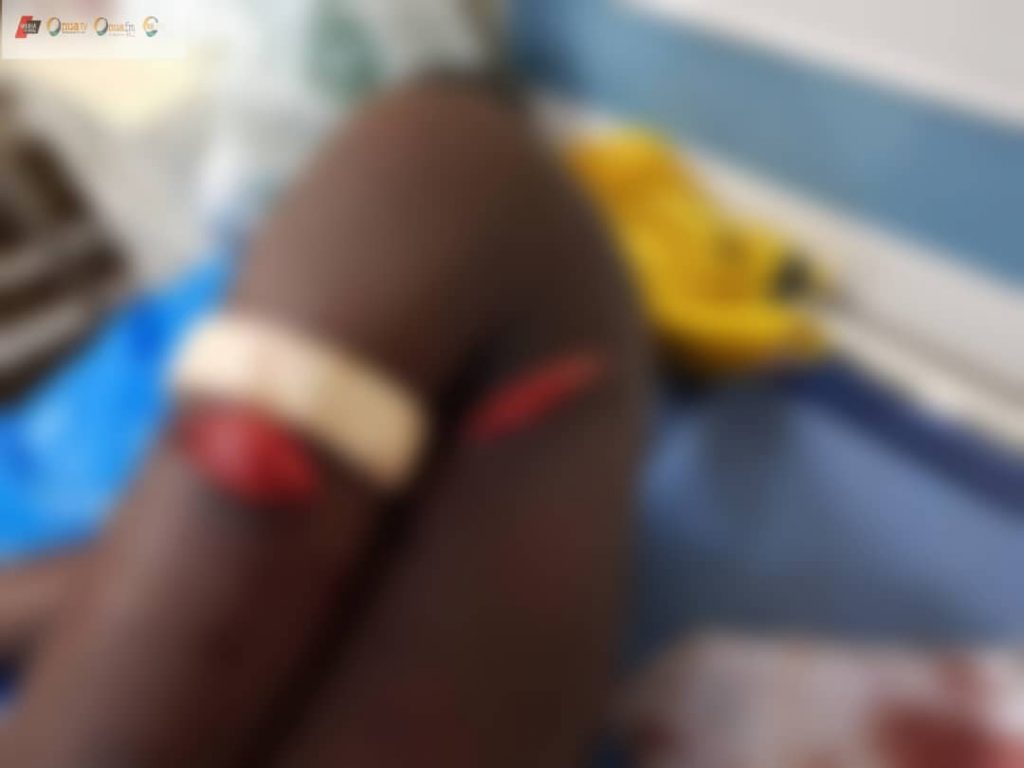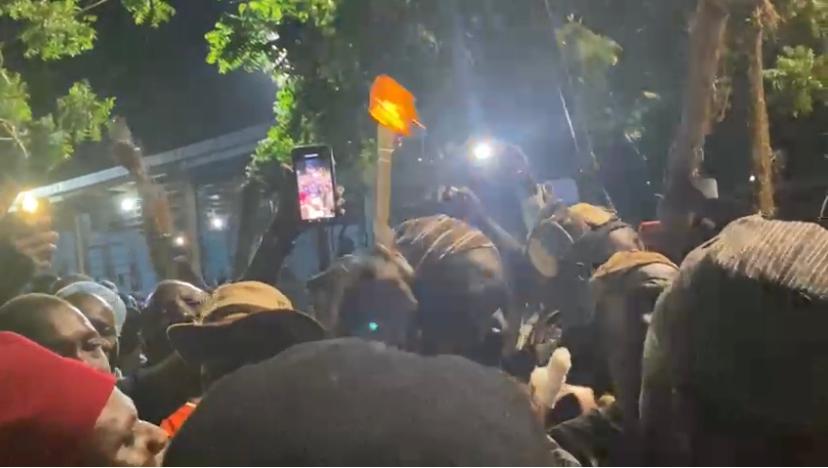The Fire Festival also known as Jintege in Gonja and Bugum in Dagbani, is one of the beautiful festivals of the northern regions.
It is believed to be celebrated to welcome the first month of the traditional calendar.
Sacrifices are offered to the gods for their protection over the past year.
The celebration starts around 8:30 pm from the chief’s palace where he moves a flaming torch around his head three times.
Then follows a colourful procession of men, women and children with flaming torches from grass amidst the firing of musketry and chanting of war songs around the communities.
For some, it is a period to showcase their black magical powers.
Despite the euphoria, fun and happiness that characterizes the celebration, it has also become an annual ritual of injuries due to the use of sophisticated guns, machetes and other deadly weapons making the procession even more dangerous and deadly.
An annual festival to usher in a new month which is supposed to be peaceful and interesting, often end up with several casualties.

Some take advantage of the show of powerful juju, to deliberately inflict deadly injuries on their perceived enemies.
Whereas some are mammed for life, others die in the process.
Could this be blamed on tradition or the infiltration of small arms?
A conflict prevention and peace building specialist Rev. Father Clement Mweyang said, the use of offensive weapons can easily spark conflict.
“Education is very paramount in this regard because majority of these areas are already conflict prone and the continuous use of these weapons can fuel them because it gives a signal of preparedness,“ he said.
In 2021, the Regional Security Councils for Northern and Savannah Regions together with traditional authorities, placed a ban on the use of offensive weapons during the fire festival.

But this could not prevent the usual incidence of injuries from the use of offensive weapons.
Data from the international firearm injury and policy for 2020 showed that, an estimated two million, three hundred thousand licit and illicit firearms were owned by civilians with over 2,000 lives lost due to the use of firearms.
Act 736, of 2007, which establishes The Commission on Small Arms and Light Weapons was set out to regulate the possession and use of arms and ammunitions.
Douglas Koku Anin is the head of the Commission on small arms and light weapons in the Northern Region.
“Unfortunately our local artisans continue to manufacture these guns here which by law is illegal and these guns find themselves into wrong hands who want to use them during occasions such as funerals and festivals which sometimes doesn’t end well,” Mr. Anin noted.
He called for the upgrading of the Commission into a regulatory body to control the infiltration of firearms in the system.
“The small arms and light weapons commission since its establishment in 2007 only serves as an advisory body and does not have the power to regulate the use of these offensive weapons and I will plead for the upgrading of the laws to be able to regulate and track these weapons,” he indicated, adding that “we also need collaboration from other institutions to be able to deal with the challenge.”
By Christopher Amoako|N/R|Onuaonline.com








